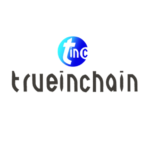Brexit. Terrorist attacks. Climate change. Corona virus. Whether its fake news, deep fakes, disinformation or the deliberate spreading of false information with the intent to deceive, it seems like this kind of phenomenon is on the rise.
We’ve seen how elections can be swayed, how spreading sensationalized information sows panic during disasters, and heard about online smear campaigns for people and brands. And it’s down to us, too – not bothering to verify authenticity and truthfulness before hitting the share button only adds to the problem. Along with more and more people using the internet and social media, we see a faster spread of fake news and disinformation to a level that has even prompted governments and the private sector to come up with measures to fight these threats.
Here is our compilation of European startups and institutions who at the forefront in the fight against fake news and disinformation.
 Logically – With the Logically app, when you share an article the technology behind the app will pick out the key claims within it. You can then select the claim you’re suspicious of and if the app can verify it with its clever tech, it will tell you straight away. If not, Logically’s fact checkers will get to work researching it. The app features a home page with 65,000 publishers in one streamlined news feed. It clusters and prioritises articles, condensing the multitude of content available online into a news feed with objective headlines, designed to inform instead of engage. Other useful features include the app picking out positive, negative and neutral articles for each story that can help you position yourself within the debate. It also allows you to look into the key players in a story and its automated timeline keeps you up to date with every development in your favourite stories and helps you fill in the gaps. This London-based startup was founded in 2017 and has now around 70 members of staff across the UK and India. In 2018, Logically raised an angel round amounting to €2.2 million.
Logically – With the Logically app, when you share an article the technology behind the app will pick out the key claims within it. You can then select the claim you’re suspicious of and if the app can verify it with its clever tech, it will tell you straight away. If not, Logically’s fact checkers will get to work researching it. The app features a home page with 65,000 publishers in one streamlined news feed. It clusters and prioritises articles, condensing the multitude of content available online into a news feed with objective headlines, designed to inform instead of engage. Other useful features include the app picking out positive, negative and neutral articles for each story that can help you position yourself within the debate. It also allows you to look into the key players in a story and its automated timeline keeps you up to date with every development in your favourite stories and helps you fill in the gaps. This London-based startup was founded in 2017 and has now around 70 members of staff across the UK and India. In 2018, Logically raised an angel round amounting to €2.2 million.
 Right of Reply – This startup has created an online reputation platform allowing you to regain control and ‘tell your truth’, drawing on patented search, respond and publish, and blockchain technology. It states that the three key determinants affecting online reputation are 1) personal online content, 2) credit reports and 3) personal attacks on social media and blogs. Its platform aims to provide rapid, low-cost, and legally sound solutions for both consumers and companies, related to all three aspects. Through its various online platforms, individuals can respond to negative or erroneous content with timeliness and relevance. The general public can also access multiple perspectives on specific content to form a full and unbiased opinion. Founded in 2016 in London, Right of Reply is a registered social enterprise in the UK, and raised €2.2 million via issuance of common shares in August 2018.
Right of Reply – This startup has created an online reputation platform allowing you to regain control and ‘tell your truth’, drawing on patented search, respond and publish, and blockchain technology. It states that the three key determinants affecting online reputation are 1) personal online content, 2) credit reports and 3) personal attacks on social media and blogs. Its platform aims to provide rapid, low-cost, and legally sound solutions for both consumers and companies, related to all three aspects. Through its various online platforms, individuals can respond to negative or erroneous content with timeliness and relevance. The general public can also access multiple perspectives on specific content to form a full and unbiased opinion. Founded in 2016 in London, Right of Reply is a registered social enterprise in the UK, and raised €2.2 million via issuance of common shares in August 2018.
 Factmata – Factmata develops contextual understanding algorithms, driven by communities and experts who share the goal of reducing online misinformation and abusive content from the internet. It uses unique algorithms combined with AI to classify content in subtle ways building a platform to help fix the problem across the whole of the media industry – from the spread of biased, incorrect content and misleading clickbaits on numerous aggregating platforms; to the use of advertising networks that help distribute that content. Factmata was founded in 2017 and is based out of London. The team has won a number of awards, including the UNESCO Netexplo Award 2019, has been featured in publications like The Times, Forbes, Bloomberg and The Guardian, as well as having raised a total of €2.7 million in three rounds, with the last round of funding being in July 2019.
Factmata – Factmata develops contextual understanding algorithms, driven by communities and experts who share the goal of reducing online misinformation and abusive content from the internet. It uses unique algorithms combined with AI to classify content in subtle ways building a platform to help fix the problem across the whole of the media industry – from the spread of biased, incorrect content and misleading clickbaits on numerous aggregating platforms; to the use of advertising networks that help distribute that content. Factmata was founded in 2017 and is based out of London. The team has won a number of awards, including the UNESCO Netexplo Award 2019, has been featured in publications like The Times, Forbes, Bloomberg and The Guardian, as well as having raised a total of €2.7 million in three rounds, with the last round of funding being in July 2019.
 AdVerif.ai – Adverif is an artificial intelligence company providing content verification solutions for advertisers, publishers and ad networks. It aims to keep users safe from spam, malicious software, inappropriate and deceiving content. Adverif.ai leverages the full range of AI and advertising technologies, along with semantic text analysis, to complete its mission. With its proprietary FakeRank algorithm, it helps human reviewers scale the moderation process and improve its accuracy keeping users safe and brands’ reputation pristine. Founded in 2017 and headquartered in Amsterdam, AdVerif.ai has been named among 36 in the 2019 CB Insight’s New International “Game Changers” Report. It is also part of the “EU Versus Disinformation” campaign.
AdVerif.ai – Adverif is an artificial intelligence company providing content verification solutions for advertisers, publishers and ad networks. It aims to keep users safe from spam, malicious software, inappropriate and deceiving content. Adverif.ai leverages the full range of AI and advertising technologies, along with semantic text analysis, to complete its mission. With its proprietary FakeRank algorithm, it helps human reviewers scale the moderation process and improve its accuracy keeping users safe and brands’ reputation pristine. Founded in 2017 and headquartered in Amsterdam, AdVerif.ai has been named among 36 in the 2019 CB Insight’s New International “Game Changers” Report. It is also part of the “EU Versus Disinformation” campaign.
 Alto Analytics – Alto Analytics is a big data analytics platform that maps digital relationships and patterns, in order to fight disinformation and deep fakes, guard a brand’s reputation and provide commercial insights and online/offline influence analysis. It aims to help public, private and non-profit organizations around the world get the information they need to make timely decisions based on actionable insights. This Madrid-based startup was founded in 2012 and has the capability to do real-time analysis of public data sources across 53 languages and 125 countries.
Alto Analytics – Alto Analytics is a big data analytics platform that maps digital relationships and patterns, in order to fight disinformation and deep fakes, guard a brand’s reputation and provide commercial insights and online/offline influence analysis. It aims to help public, private and non-profit organizations around the world get the information they need to make timely decisions based on actionable insights. This Madrid-based startup was founded in 2012 and has the capability to do real-time analysis of public data sources across 53 languages and 125 countries.
 trueinchain – trueinchain is an Italian startup, founded in 2017, that uses blockchain to track fake news and flag it with one click. You just need to insert the link for the fake news, explain with comments or an attached file why you think the news to be “fake” , press send then trueinchain’s technology will take care of the rest. Trueinchain is also cultivating a global community of debunkers. Debunkers track down and dismantle lies and hoaxes to prove the unreliability of their contents and sources. TrueInChain will try to create over time a database, built by a community of experts, with the aim of making public a blacklist of the worst fake news passed off in the Italian digital landscape, for starters.
trueinchain – trueinchain is an Italian startup, founded in 2017, that uses blockchain to track fake news and flag it with one click. You just need to insert the link for the fake news, explain with comments or an attached file why you think the news to be “fake” , press send then trueinchain’s technology will take care of the rest. Trueinchain is also cultivating a global community of debunkers. Debunkers track down and dismantle lies and hoaxes to prove the unreliability of their contents and sources. TrueInChain will try to create over time a database, built by a community of experts, with the aim of making public a blacklist of the worst fake news passed off in the Italian digital landscape, for starters.
 Fake News Guard – Fake News Guard combines AI with feedback from users to detect fake information. Their API is in alpha-stage and is currently being tested Chrome extension that helps you use their system while you navigate is downloadable from their website. With the chrome extension, you can passively monitor the pages you are visiting or your Facebook feed, or actively send them suspicious links. The extension serves as a passive form of protection. Every page you visit and every link that ends up on your Facebook feed is checked against their blacklist. If the source of the article has been blacklisted, you will get a warning in the browser. Fake News Guard was founded in 2017, is in alpha testing stage, and is currently based in London.
Fake News Guard – Fake News Guard combines AI with feedback from users to detect fake information. Their API is in alpha-stage and is currently being tested Chrome extension that helps you use their system while you navigate is downloadable from their website. With the chrome extension, you can passively monitor the pages you are visiting or your Facebook feed, or actively send them suspicious links. The extension serves as a passive form of protection. Every page you visit and every link that ends up on your Facebook feed is checked against their blacklist. If the source of the article has been blacklisted, you will get a warning in the browser. Fake News Guard was founded in 2017, is in alpha testing stage, and is currently based in London.
 nwzer – nwzer is an AI and blockchain assisted, user-generated news agency. Nwzer claims to be the world’s first AI powered citizen journalism. Nwzer user-generated news uses the so-called wisdom of crowds to source its news. Shortly after its foundation in 2017, in Maastricht, nwzer’s wisdom of crowds machine received funding from the Google Digital News Initiative. Since 2018 nwzer started working on this web-based collaboration tool, using the wisdom of crowds principles, assisted by machine learning/AI, towards the world’s first user-generated news agency.
nwzer – nwzer is an AI and blockchain assisted, user-generated news agency. Nwzer claims to be the world’s first AI powered citizen journalism. Nwzer user-generated news uses the so-called wisdom of crowds to source its news. Shortly after its foundation in 2017, in Maastricht, nwzer’s wisdom of crowds machine received funding from the Google Digital News Initiative. Since 2018 nwzer started working on this web-based collaboration tool, using the wisdom of crowds principles, assisted by machine learning/AI, towards the world’s first user-generated news agency.
 Storyzy – Storyzy, detects and classifies Fake News sources (false information, propaganda, conspiracy, etc.) via its 100% automated content technology. Its unique technology analyzes URLs and rank news sources objectively, Founded in 2012 in Paris, Storyzy’s R&D has been co-financed by the French Army since 2015. For schools, it has developed Newscoach (which guides students, teachers and parents in the jungle of disinformation), and for brands and advertising platforms, Storyzy offers a safer advertising environment. Storyzy’s database has +28,000 English and French disinformation videos and sites (+13% new entries per month), as of May 2019, and has mejor clients such as Havas Media, IPG Mediabrands and more.
Storyzy – Storyzy, detects and classifies Fake News sources (false information, propaganda, conspiracy, etc.) via its 100% automated content technology. Its unique technology analyzes URLs and rank news sources objectively, Founded in 2012 in Paris, Storyzy’s R&D has been co-financed by the French Army since 2015. For schools, it has developed Newscoach (which guides students, teachers and parents in the jungle of disinformation), and for brands and advertising platforms, Storyzy offers a safer advertising environment. Storyzy’s database has +28,000 English and French disinformation videos and sites (+13% new entries per month), as of May 2019, and has mejor clients such as Havas Media, IPG Mediabrands and more.
 Mindzilla – Mindzilla, founded in 2018, is using AI and blockchain to solve the most challenging information problems around the world. The startup understands that today, it is nearly impossible to see the real world through the whirlpool of badly framed stories, incomplete analysis, self-serving content, fake news and poor accessibility to specialist information. Its AI system tackles misinformation by taking away the need for human judgement and bias when determining the relevancy and accuracy of information. Its ‘true democratic process’ means that validation is based on the content itself, not on where it comes from.
Mindzilla – Mindzilla, founded in 2018, is using AI and blockchain to solve the most challenging information problems around the world. The startup understands that today, it is nearly impossible to see the real world through the whirlpool of badly framed stories, incomplete analysis, self-serving content, fake news and poor accessibility to specialist information. Its AI system tackles misinformation by taking away the need for human judgement and bias when determining the relevancy and accuracy of information. Its ‘true democratic process’ means that validation is based on the content itself, not on where it comes from.
By the way: If you’re a corporate or investor looking for exciting startups in a specific market for a potential investment or acquisition, check out our Startup Sourcing Service!
via https://www.AiUpNow.com/ by contact@bcurdy.com, Khareem Sudlow
